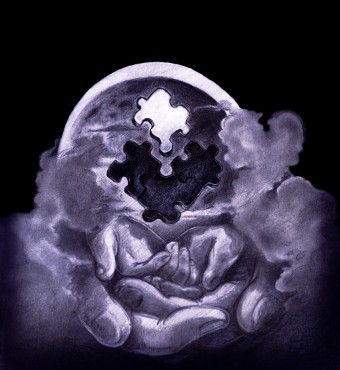The fatal shooting at a community college in Umpqua, Ore. on Oct. 1 was a tragedy that rocked the United States, and deeply affected everyone who watched it unfold. Once again, the media soon started to speculate about what drove the shooter to his actions. Articles began to surface with the mother of the shooter claiming both she and her son had Asperger’s Syndrome.
Blaming shootings on Autistic Spectrum Disorders (ASDs) is nothing new. When Elliot Rodger, son of the creative director for the Hunger Games films, went on his shooting spree in May 2014, the media said he had Asperger’s as well. And despite studies showing that there is no correlation between ASDs and violent crime, the media and public seem to eat up such speculation, eager to blame autistics for shootings all the way from Sandy Hook to the Oregon tragedy.
The most recent example of this comes in the form of a Facebook group called Families United Against Autistic Shooters. Despite the page being flagged and petitions filed against it, Facebook initially decided to leave it up, wavering between whether it violates their policy or not. Meanwhile, the group is given a platform to discriminate against autistics and perpetuate their negative claims to the point that autistics and their allies are not feeling safe on Facebook.
Now, most might say, “so what? This discrimination is just on Facebook, or in the media. It’s not like it’s going to affect people in real life.” However, discrimination against people with ASDs has been growing for years, and, especially with the most recent wave, there have even been deaths and attempted murders due to lack of awareness and support, though admittedly such cases are few.
This is now a fear that people with high-functioning ASDs live with every single day. Imagine that you’ve been made aware that the mainstream media, the powers that be, and members of the average population view people like you as predisposed to committing violent crime. As a result, in addition to worrying about your social skills being off, and not knowing when or if any of the other ASD symptoms like sensory overload will kick in, you’re afraid to reveal your disorder to new people. You end up imagining, based on all this data, that if you approach someone and say, “Hi, I have Asperger’s” or, “I have an ASD,” you will be feared. You may even have people running from you because they think you’re a mass shooter or somehow violent, in addition to being odd or different. This risk may be low, but speaking as someone with Asperger’s, this fear is all too real for me.
Universities and colleges are supposed to be safe spaces for all. However, in an attempt to create a safe space for students, what if one group gets unduly vilified and marginalized in the process? Some have called me an alarmist for worrying about this in the past. However, Islam is yet again being associated with terrorism due to fallout from the federal election’s niqab debate; it’s not too much of a leap to believe that one day, similar tactics may be used those with ASDs.
I urge everyone, if you know of someone with an ASD — get to know them better. We are people, not monsters. We are not mass shooters in training. We need to build bridges, and to get help and support. Contrary to what some groups are claiming, we are not the enemy. And we need a safe space too.







